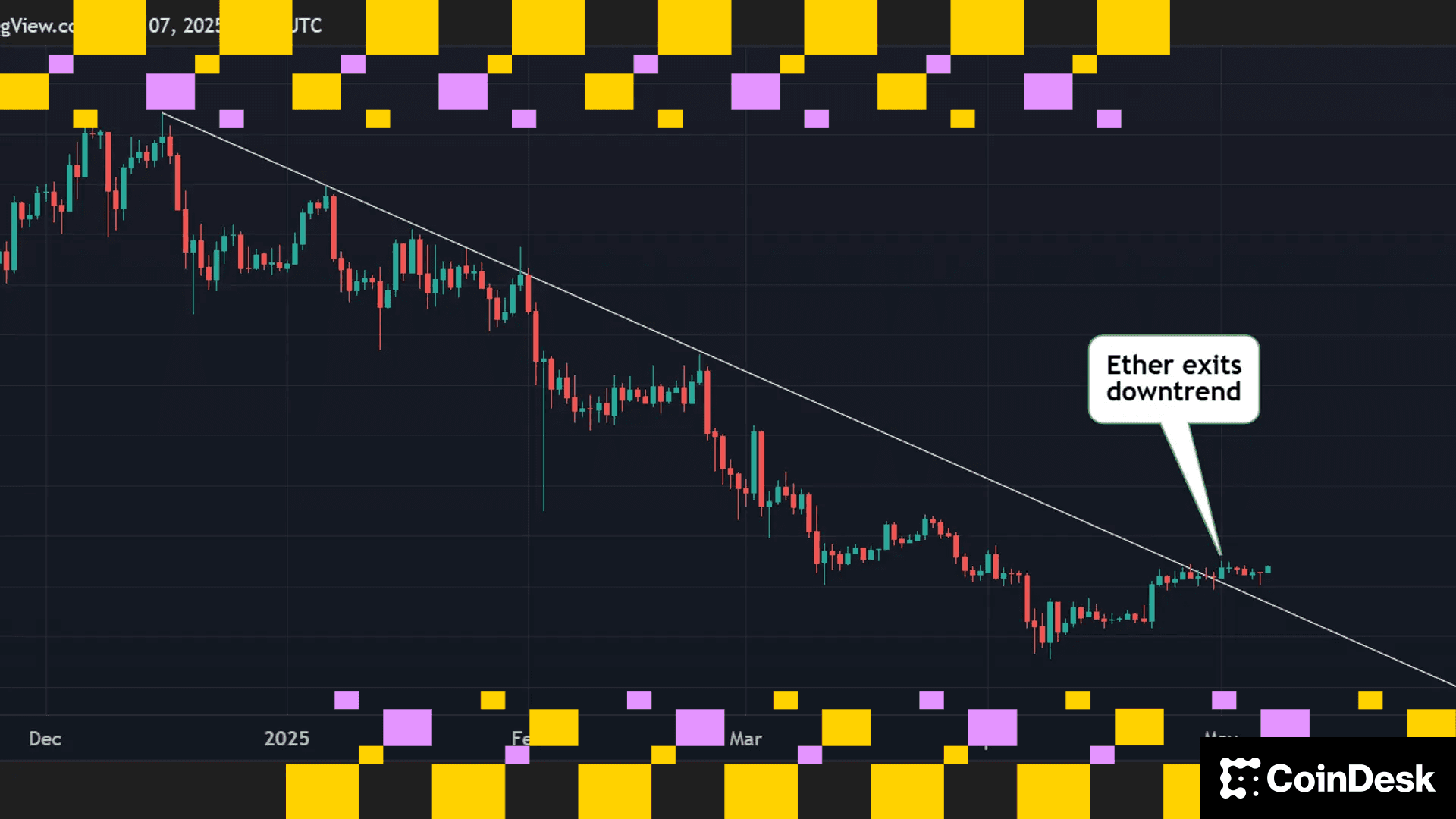Stablecoins Like USDC See Growing Demand in Latin America: Bitso CEO
Latin Americans are increasingly turning to stablecoins as a store of value.
Latin Americans are increasingly turning to stablecoins as a store of value, Bitso CEO Daniel Vogel said Tuesday.
Vogel said on CoinDesk TV's "First Mover" program the Mexico-based exchange, with 2 million users in markets, including Mexico, Argentina and Brazil, has seen a sharp increase in demand for dollar-linked stablecoins USD coin and tether on the Bitso app.
“We are seeing a big demand for different stablecoins on our platform,” Vogel said.
Cryptocurrencies from bitcoin to ether are in various stages of adoption around the world, and Vogel’s comments might signal that stablecoins are becoming the latest hot purchase in Latin America and other emerging markets.
Stablecoins, which typically include digital tokens whose value is linked to a government-issued currency such as the U.S. dollar, could gain extra appeal in places where the local currencies tend to be less stable and possibly subject to capital controls because of inflation.
Read more: Indonesia Considers Levying Tax on Crypto Profits
According to Vogel, Bitso is starting to see customers in the region hold dollar balances in stablecoins, a trend that has accelerated since the pandemic. He said that purchasing U.S. dollars via bank accounts in many Latin American countries can be extremely difficult, except for rich clients.
“If you’re straight out of college and want to save your money in U.S. dollars, no bank account will even open you an account,” he said.
The stablecoin dai, from the MakerDAO protocol, initially had a leg up in Latin America because the efforts it made early on and it became the favorite of locals, Vogel said.
But Vogel said USDC now appears to be gaining in the region.
USD coin’s backers have pushed to market the stablecoin in Latin America, and “it has one of the easiest on-ramps,” he said.
Read more: Israel’s Central Bank Considers Issuing a Digital Shekel
According to Vogel, Mexicans have stored their savings in dollars – the paper version – for a long time.
“Mexicans have always done this, buying U.S. dollars at the airport on holiday to take back home,” he said. “There’s black markets where you can access dollars in Argentina.”
Bitso recently announced it has raised $250 million in a series C round of funding, valuing the company at $2.2 billion. The company is focusing on expanding its product and gaining more customers in the region.
More For You
Exchange Review - March 2025

CoinDesk Data's monthly Exchange Review captures the key developments within the cryptocurrency exchange market. The report includes analyses that relate to exchange volumes, crypto derivatives trading, market segmentation by fees, fiat trading, and more.
What to know:
Trading activity softened in March as market uncertainty grew amid escalating tariff tensions between the U.S. and global trading partners. Centralized exchanges recorded their lowest combined trading volume since October, declining 6.24% to $6.79tn. This marked the third consecutive monthly decline across both market segments, with spot trading volume falling 14.1% to $1.98tn and derivatives trading slipping 2.56% to $4.81tn.
- Trading Volumes Decline for Third Consecutive Month: Combined spot and derivatives trading volume on centralized exchanges fell by 6.24% to $6.79tn in March 2025, reaching the lowest level since October. Both spot and derivatives markets recorded their third consecutive monthly decline, falling 14.1% and 2.56% to $1.98tn and $4.81tn respectively.
- Institutional Crypto Trading Volume on CME Falls 23.5%: In March, total derivatives trading volume on the CME exchange fell by 23.5% to $175bn, the lowest monthly volume since October 2024. CME's market share among derivatives exchanges dropped from 4.63% to 3.64%, suggesting declining institutional interest amid current macroeconomic conditions.
- Bybit Spot Market Share Slides in March: Spot trading volume on Bybit fell by 52.1% to $81.1bn in March, coinciding with decreased trading activity following the hack of the exchange's cold wallets in February. Bybit's spot market share dropped from 7.35% to 4.10%, its lowest since July 2023.
Meer voor jou












